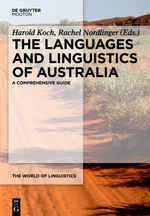MLIP blog April 2017
Alan Ray recaps the April Melbourne Linguistics in the Pub (MLIP) a monthly discussion group. This month’s MLIP was held in conjunction with Language practices and language policies in multilingual contexts workshop, University of Melbourne 6-7 April 2017
Leading the discussion was Judith Purkarthofer, Multiling: Center for Multilingualism in Society across the Lifespan, University of Oslo
She summarised the discussion in the announcement on the RNLD blog as below:
This discussion will start with experiences in researching family languages, policies and practices in a Northern European context. National languages, minority languages and languages of migration are considered a public question, but they are also very much a private question for families and family members.
 Follow
Follow